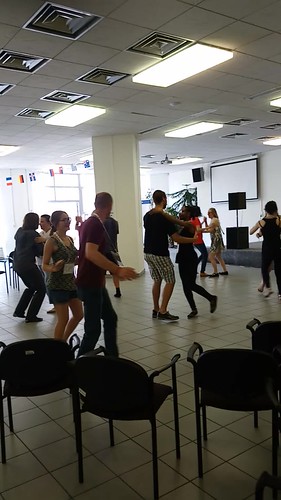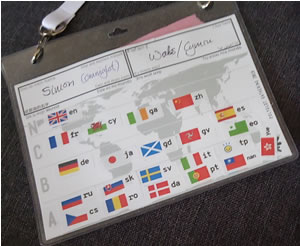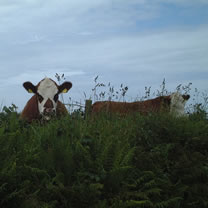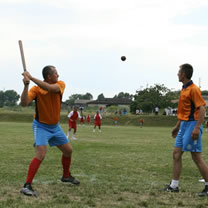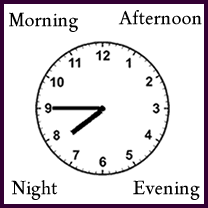Yesterday morning I went for a wander around Bratislava, had lunch, then headed to the airport. I got there a bit early, and spent my time mainly listening to an audiobook. There were a couple of other polyglots (from Russian) there, so I had a little chat with them as well.
Bore ddoe mi wnes crwydro o gwmpas Bratislava, ges i ginio, ac yna es i i’r maes awyr. Mi wnes i gyrraedd yna tipyn bach yn gynnar, a mi wnes i gwario fy amser yn gwrando ar llyfr sain yn bennaf. Roedd dau amlieithogwyr (o Rwsia) yna, felly mi wnes i cael sgwrs bach â nhw hefyd.
When I was queueing for the flight, a mother with two daughters was in front of me speaking Slovak and English to each other. By coincidence, they were the same ones who were in the queue in front of me in Birmingham on the way to Bratislava.
Pan ro’n i’n ciwio am yr ehediad, roedd mam efo dwy ferch o’m blaen i yn siarad Slofaceg a Saesneg efo’i gilydd. Fel cyd-ddigwyddiad, roedden nhw yr un pwy oedd yn y res o’m blaen i yn Birmingham ar y ffordd i Bratislava.
On the train from the airport there was a man speak and singing loudly in a language that sounded like Arabic. He appeared to be talking and singing to someone on his phone, though may have just been doing it to himself – he was rather drunk, I think.
Ar y trên o’r maes awyr roedd dyn yn siarad ac yn canu mewn iaith sy’n swnio fel Arabeg. Roedd fel petai roedd o’n siarad ac yn canu efo rhywun ar ei ffôn, ond mae’n bosib roedd o’n gwneud hynny efo’i gilydd – roedd o wedi meddw, dw i’n meddwl.
I arrived back in Bangor last night, and today I’m catching up with things I couldn’t do while away
Mi wnes i gyrraedd yn ôl ym Mangor neithiwr, a heddiw dw i’n gwneud y pethau ro’n i ddim medru gwneud wrth i mi bod i ffwrd.

